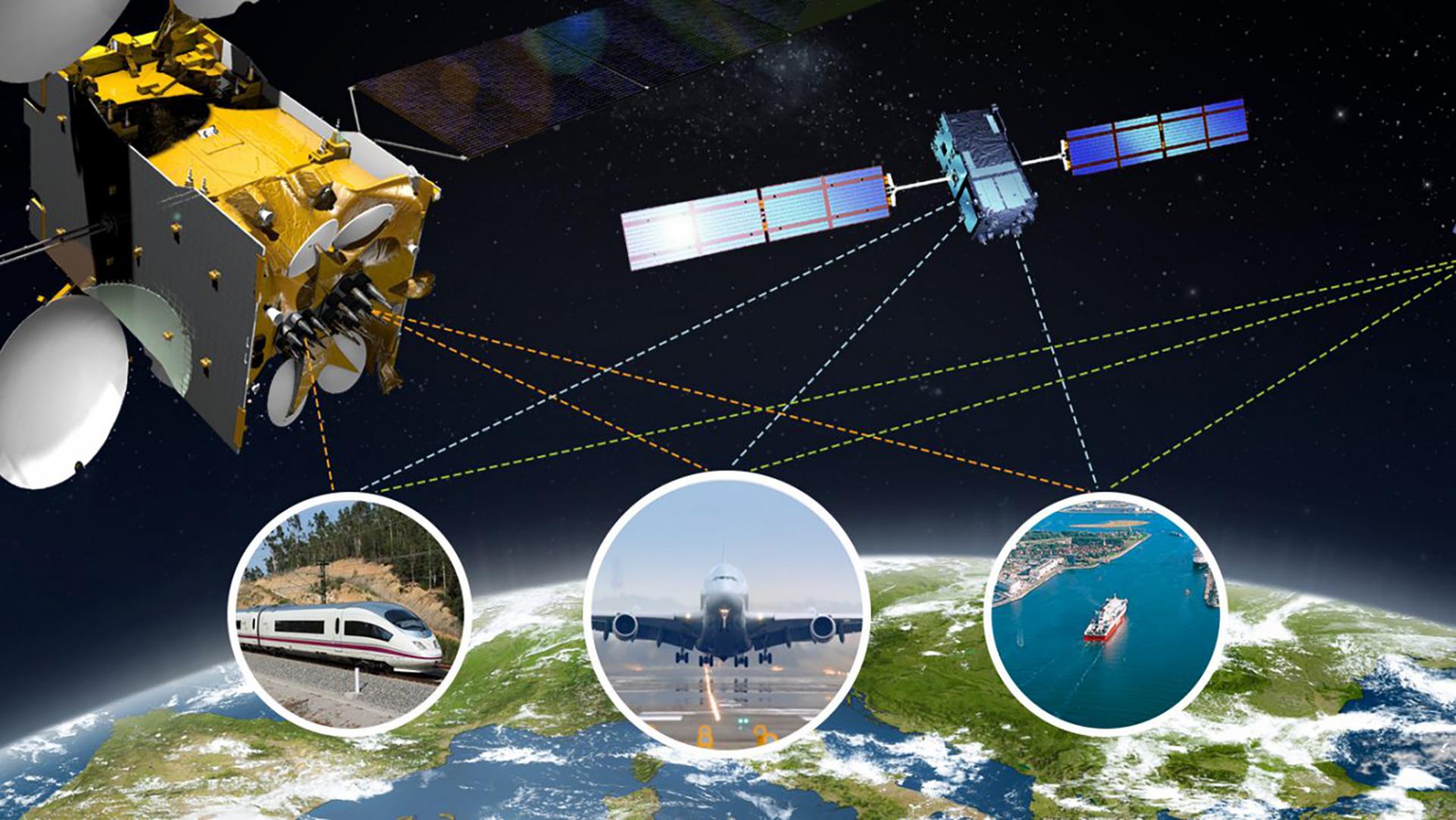First test signal of the third-generation EGNOS system successfully broadcasted

A team from IEEC at the Universitat Autònoma de Barcelona (UAB) has developed the algorithm to steer the signals sent from ground to the EGNOS satellites and broadcast back to EGNOS users.
The companies Airbus and Indra, together with the Universitat Autònoma de Barcelona (UAB), the European Union Agency for the Space Programme (EUSPA), the European Space Agency (ESA) and Eutelsat, have successfully completed the first test signal broadcast of the third-generation (V3) EGNOS system (acronym which stands for ‘European Geostationary Navigation Overlay Service’).
EGNOS provides corrections and integrity information for 'Global Positioning System' (the well-known GPS) signals received by users and it is the system used, for instance, by aircrafts for GPS-assisted automatic landings. The new EGNOS V3 will augment and improve both GPS and GALILEO performances in some of the signal frequencies for civilian use (more specifically, in the L1/L5 and E1/E5 bands), thus providing satellite-positioning services to the most safety-critical applications, with aircraft navigation in the spotlight.
ESA awarded the development of EGNOS V3 to a consortium led by Airbus together with Indra, with the participation of researchers from the Institute of Space Studies of Catalonia (IEEC — Institut d’Estudis Espacials de Catalunya) at the Center of Space Studies and Research (CERES, UAB – IEEC). The team is formed by Dr Sergi Locubiche-Serra and Professors Gonzalo Seco-Granados and José A. López-Salcedo, researchers of the UAB’s 'Signal Processing for Communications and Navigation' research group (SPCOMNAV) and IEEC members.

out by the long loop algorithm (LLA) developed by IEEC
researchers at UAB. / S. Locubiche et al., Proceedings ION
GNSS+, 2021.
The researchers have developed the algorithm implemented in the ‘Navigation Land Earth Station’ (NLES) that steers the signals sent from the ground to the EGNOS satellites and from these to the users. This algorithm, an essential part of the EGNOS system, allows seeing the received signal as if it had been generated on the satellite and not on ground as it actually is, and becomes one of the indispensable parts for the operation of the EGNOS system and, in this case, the forthcoming EGNOS V3 system.
Experimental tests of this algorithm were carried out in November 2021 during the first EGNOS V3 on-site proof-of-concept event where the algorithm was implemented on a real NLES station and transmission with a real satellite was performed. The tests were completed successfully and the algorithm worked flawlessly on the first attempt.
Therefore, this first integration concluded to validate that the algorithm created by the IEEC team successfully ensures that each signal is correctly steered at the satellite output by adapting in real time the uplink transmitted signal from ground NLES stations.
EGNOS V3
The third generation of EGNOS will operate on a multi-frequency and multi-constellation basis (GPS, GALILEO), embedding security protection against cyber-attacks.
The EGNOS-V3 test-signal campaign involved the new version of the EGNOS V3’s NLES, developed by Indra as well as the Eutelsat E5WB’s dual-frequency SBAS payload developed by Airbus.
EGNOS and its evolutions are managed by the EU Agency for the Space Programme under the governance of the European Commission Directorate-General for Defence, Industry and Space (DG-DEFIS). The systems are designed and developed by ESA.
Press release made in cooperation with Airbus, the European Union Agency for the Space Programme and the European Space Agency.
Main Image
EGNOS V3 satellite
Credit: Airbus
Links
– IEEC
– CERES
– UAB
– European Union Agency for the Space Programme (EUSPA)
– European Space Agency (ESA)
More information
The Institute of Space Studies of Catalonia (IEEC — Institut d’Estudis Espacials de Catalunya) promotes and coordinates space research and technology development in Catalonia for the benefit of society. IEEC fosters collaborations both locally and worldwide and is an efficient agent of knowledge, innovation and technology transfer. As a result of 25 years of high-quality research, done in collaboration with major international organisations, IEEC ranks among the best international research centers, focusing on areas such as: astrophysics, cosmology, planetary science, and Earth Observation. IEEC’s engineering division develops instrumentation for ground- and space-based projects, and has extensive experience in working with private or public organisations from the aerospace and other innovation sectors.
IEEC is a private non-profit foundation, governed by a Board of Trustees composed of Generalitat de Catalunya and four other institutions that each have a research unit, which together constitute the core of IEEC R&D activity: the Universitat de Barcelona (UB) with the research unit ICCUB — Institute of Cosmos Sciences; the Universitat Autònoma de Barcelona (UAB) with the research unit CERES — Center of Space Studies and Research; the Universitat Politècnica de Catalunya · BarcelonaTech (UPC) with the research unit CTE — Research Group in Space Sciences and Technologies; the Spanish Research Council (CSIC) with the research unit ICE — Institute of Space Sciences. IEEC is a CERCA (Centres de Recerca de Catalunya) center.
Contacts
IEEC Communication Office
Barcelona, Spain
Ana Montaner and Rosa Rodríguez
E-mail: comunicacio@ieec.cat
Lead Researcher at IEEC
Barcelona, Spain
José A. López-Salcedo
Center of Space Studies and Research, CERES (UAB)
Institute of Space Studies of Catalonia (IEEC)
E-mail: jalopez@ieec.cat, jose.salcedo@uab.cat
